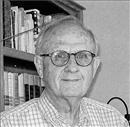Pastor sets himself on fire to protest racism

Rev. Charles Moore of Grand Saline, Texas set himself on fire on June 23 in a shopping center parking lot to protest racism. He later died of his injuries that night in a Dallas hospital.
The 79-year-old left a suicide note that said his self-immolation was in protest of Grand Saline's history of racism, and called for his hometown to repent.
Moore, who lived in Allen, Texas, drove to the Dollar General on East Garland Street in Grand Saline to commit the shocking act. At about 5:30 p.m., he got out of his car, and began pacing the parking lot. A witness said nothing seemed terribly unusual.
"He had been walking around the parking lot for a while, but he didn't seem like anything was wrong," Angi McPherson told the Tyler Morning Telegraph.
"After a while we saw him grab something square (police report would show it was a 2-by-3-foot piece of foam) and knelt down. Then we saw him grab a gas can and begin pouring something all over him. We were like, 'Is that gas?'"
The former pastor of Grace United Methodist Church in Austin lit his body and was engulfed in flames.
"He suddenly burst into flames, and he stood up and started screaming," she recounted. "One of the guys ran and tried to put him out with his shirt, while my boyfriend ran to him with a fire extinguisher and finally put him out."
Moore was flown to Parkland Hospital, where he passed away. His suicide note indicated that his method of suicide was symbolic.
"Many African Americans were lynched here, probably some in Grand Saline: hanged, decapitated and burned, some while still alive," he wrote.
"The vision of them haunts me greatly.
"So, at this late date, I have decided to join them by giving my body to be burned, with love in my heart not only for them but also for the perpetrators of such horror—but especially for the citizens of Grand Saline, many of whom have been very kind to me and others who may be moved to change the situation here."
Notes found at Moore's home indicate that he originally planned to self-immolate on the campus of Southern Methodist University (SMU), his alma mater, on June 19. The date, known as "Juneteenth," commemorates the date in 1865 when Union soldiers told Texas slaves that they were free—two years after the Emancipation Proclamation was signed.
The pastor said he lost the courage to proceed with his plan on that date, and ultimately decided not to commit suicide on SMU's campus at all. The notes also express his struggle with keeping his plan from his wife and family members, and his conviction that such a death was his destiny.
"This decision to sacrifice myself was not impulsive: I have struggled all my life (especially the last several years) with what it means to take Dietrich Bonhoeffer's insistence that Christ calls a person to come and die seriously," he wrote, referencing a German Lutheran pastor killed by the Nazis during World War II.
"He was not advocating self-immolation, but others have found this to be the necessary deed, as I have myself for some time now: it has been a long Gethsemane..."
Moore is survived by his wife, Barbara, sons, Guy and Steve, and two grandchildren.











